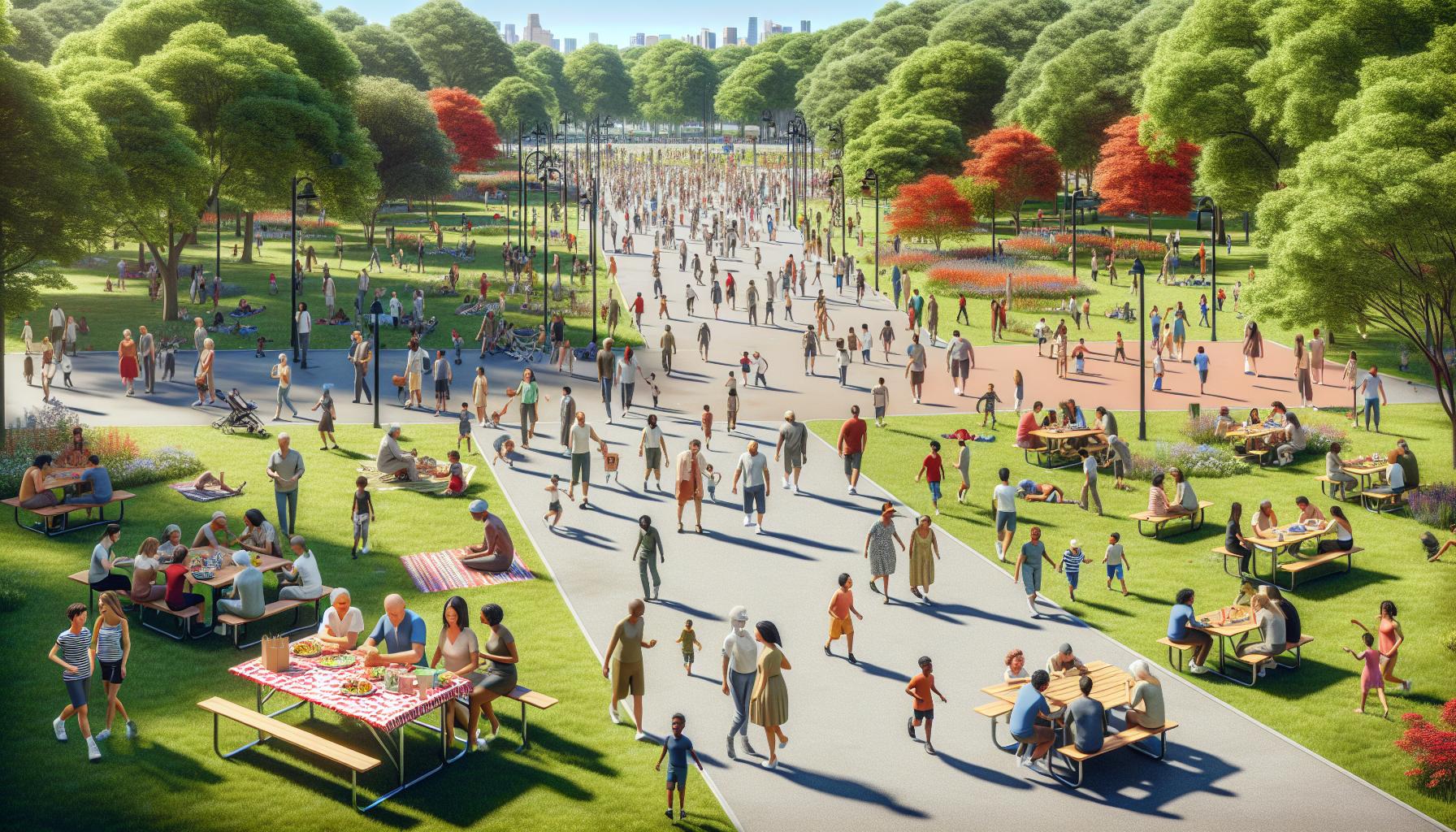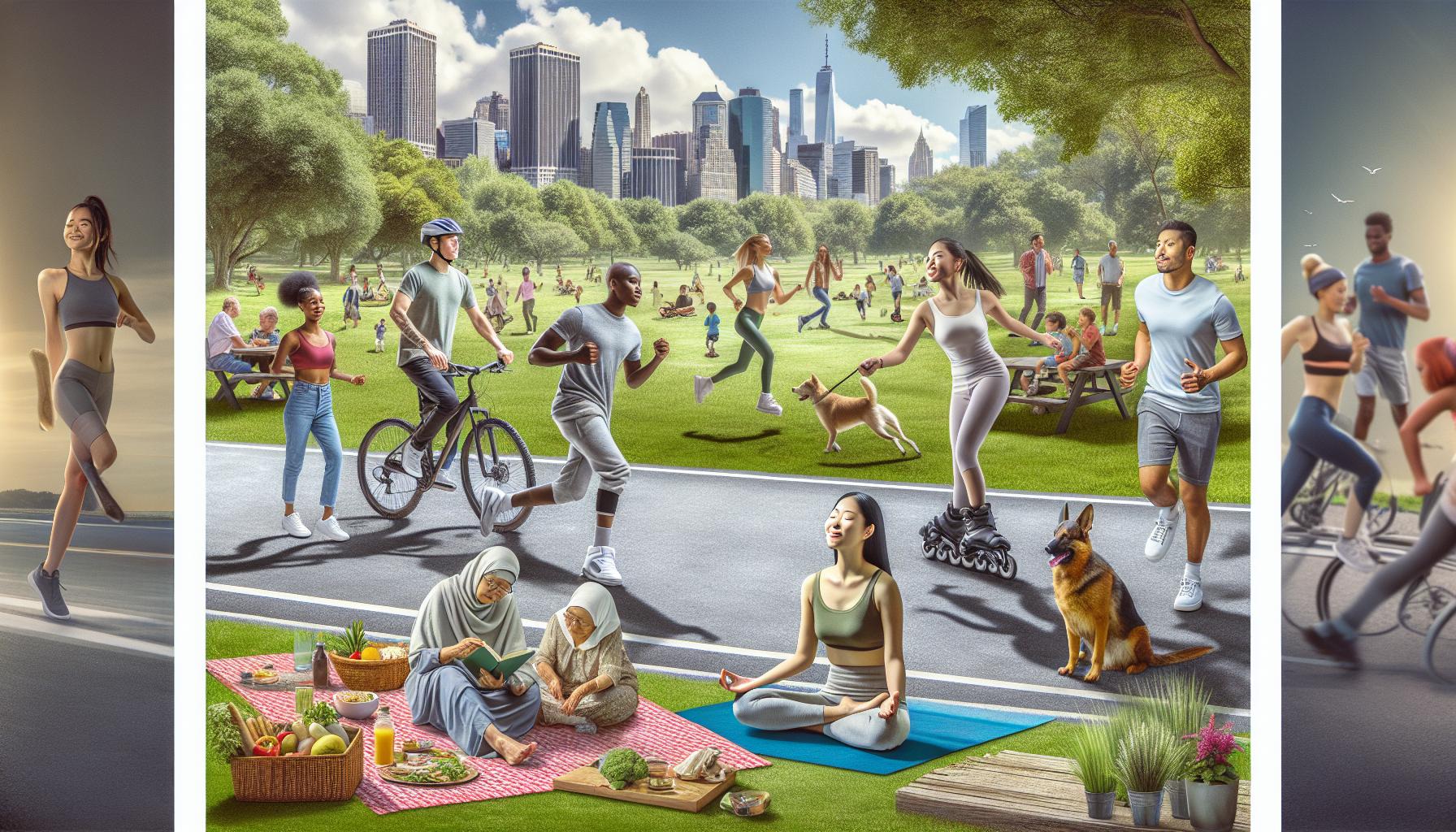Lifestyles shape how individuals experience life, influencing everything from daily routines to long-term goals. With the world becoming increasingly interconnected, diverse lifestyles emerge, reflecting personal choices, values, and cultural backgrounds. Understanding these different ways of living can offer insights into how people navigate their environments and relationships.
From minimalist living to the hustle of urban professionals, each lifestyle has its unique characteristics and challenges. Exploring these variations not only highlights the richness of human experience but also encourages self-reflection on personal values and aspirations. As society evolves, so do the lifestyles that define it, making this an ever-relevant topic for anyone looking to understand themselves and others better.
Key Takeaways
- Lifestyles Influence Well-Being: Daily habits, values, environment, and economic status shape lifestyle choices that significantly impact physical and mental health.
- Diversity of Lifestyles: Different lifestyles, such as healthy, minimalist, sustainable, and digital nomad, offer unique benefits and challenges, reflecting individual preferences and societal values.
- Health Benefits of Active Living: Engaging in a healthy lifestyle can lead to improved physical health, enhanced mental well-being, increased energy, better sleep, and a stronger immune system.
- Cultural and Economic Impact: Cultural norms and economic status play crucial roles in defining and influencing lifestyle choices and overall quality of life.
- Personal Values Drive Choices: Individual values regarding health, family, community, and spirituality serve as guiding principles that shape lifestyle decisions and aspirations.
Kinds Of Lifestyles
Lifestyles encompass the habits, practices, and values that shape daily life. Various lifestyles emerge based on individual choices and cultural influences, impacting overall well-being and success.
What Defines A Lifestyle?
A lifestyle consists of the patterns of behavior and activities that characterize an individual or group. Key factors defining a lifestyle include:
- Habits: Daily routines like exercise, eating, and working significantly shape lifestyles.
- Values: Personal beliefs influence choices about career, relationships, and leisure activities.
- Environment: Cultural and geographic contexts play crucial roles in lifestyle formation.
- Social Circles: Interactions with friends, family, and communities impact lifestyle preferences.
- Economic Status: Financial resources dictate access to services, products, and experiences.
Importance Of Lifestyle Choices
Lifestyle choices greatly affect physical, mental, and social health. Recognizing their significance leads to better decision-making:
- Health: Choices in diet and exercise directly influence physical well-being and longevity.
- Mental Well-Being: Engaging in fulfilling activities fosters happiness and life satisfaction.
- Relationships: Lifestyles shape social interactions, forming connections and community bonds.
- Career Success: Professional lifestyles often affect work-life balance and job satisfaction.
- Environmental Impact: Sustainable lifestyle choices contribute to ecological conservation and sustainability.
Understanding various lifestyles encourages informed choices that align with personal values and aspirations.
Popular Kinds Of Lifestyles

Various lifestyles reflect distinct values and choices, influencing personal well-being and societal impact. Here are some popular kinds of lifestyles that people adopt.
Healthy Lifestyles
Healthy lifestyles prioritize physical and mental well-being through balanced nutrition, regular exercise, and mindfulness practices. Individuals engaging in healthy lifestyles often consume whole foods, participate in fitness programs, and practice stress-relief techniques. Physical activity, such as yoga or running, promotes cardiovascular health and strengthens muscles. Research indicates that maintaining such a lifestyle can reduce the risk of chronic diseases by up to 80%.
Minimalist Lifestyles
Minimalist lifestyles emphasize simplicity and intentionality. Individuals choose to own fewer possessions, focusing on experiences rather than material accumulation. Minimalists often declutter their homes, reducing distractions and promoting clarity. This lifestyle encourages mindful consumption, leading to reduced environmental impact and a greater appreciation for what truly matters. Data show that minimalism can enhance mental health by decreasing anxiety levels, ultimately improving quality of life.
Sustainable Lifestyles
Sustainable lifestyles advocate for environmental stewardship and responsible resource use. Individuals adopt practices like reducing waste, using renewable energy sources, and supporting local economies. Sustainable living includes choices such as utilizing public transportation, growing personal gardens, or purchasing eco-friendly products. Research from the United Nations indicates that adopting sustainable practices can lower carbon footprints by up to 30%. This lifestyle fosters a deeper connection to nature and promotes long-term ecological health.
Digital Nomad Lifestyles
Digital nomad lifestyles allow individuals to work remotely while traveling or living in various locations. This lifestyle relies on technology and flexibility, enabling people to blend work with exploration. Digital nomads often embrace co-working spaces, foster global connections, and prioritize work-life balance. Reports show that this lifestyle can enhance creativity and innovation, with many nomads experiencing increased job satisfaction and improved mental health while exploring new cultures and environments.
Factors Influencing Lifestyles

Lifestyles are shaped by various factors that interplay with individual choices and circumstances. Understanding these factors provides insight into how lifestyles develop and evolve over time.
Culture and Society
Culture and society play significant roles in defining lifestyles. Cultural norms influence daily routines, traditions, and practices. Social expectations dictate behaviors, from dietary choices to leisure activities. For example, communities may promote communal dining or individual eating habits, affecting social interactions and dietary preferences. Societal trends, such as environmental awareness, can lead to shifts toward sustainable lifestyles, while urban environments may encourage fast-paced, career-oriented lifestyles. The influence of media, including social networks, further shapes perceptions of desirable lifestyles, often driving individuals to adopt specific practices to fit in.
Economic Status
Economic status significantly impacts lifestyles by determining access to resources, opportunities, and experiences. Higher income levels often afford choices in housing, nutrition, education, and leisure. Individuals with ample financial resources may pursue lifestyles centered around travel, fine dining, and wellness activities, while those with limited economic means might focus on frugality and practicality. Economic stability also affects health outcomes; for instance, individuals with greater financial security tend to have better access to healthcare and healthier food options. This disparity influences lifestyle choices, leading to variations in health and well-being across different economic strata.
Personal Values
Personal values serve as guiding principles for lifestyle choices. Individuals prioritize aspects such as health, family, career, spirituality, and environmental responsibility, shaping their daily activities and long-term aspirations. For instance, someone who values health may adopt a fitness-oriented lifestyle, focusing on nutrition and exercise, while another who values community might engage in volunteer work and social gatherings. Values often reflect deeper beliefs and philosophies, influencing decisions about consumption, relationships, and work-life balance. As personal beliefs evolve, so do lifestyles, showcasing the dynamic relationship between values and lifestyle choices.
Benefits And Challenges Of Different Lifestyles

Various lifestyles carry specific benefits and challenges that influence individuals’ day-to-day experiences and long-term well-being. Understanding these aspects can promote informed lifestyle choices.
Advantages Of Healthy Living
Healthy living contributes significantly to physical and mental well-being. Benefits include:
- Improved Physical Health: Regular exercise and balanced nutrition reduce the risk of chronic diseases, such as obesity, diabetes, and heart disease.
- Enhanced Mental Well-being: Engaging in physical activity releases endorphins, leading to decreased anxiety and improved mood.
- Increased Energy Levels: A nutritious diet and regular exercise enhance overall energy, making daily tasks easier to manage.
- Better Sleep Quality: Healthy habits promote improved sleep patterns, leading to increased productivity and focus during waking hours.
- Stronger Immune System: Proper nutrition and a healthy lifestyle bolster the immune response, reducing susceptibility to illnesses.
- Emotional Attachment: Letting go of possessions can provoke feelings of guilt or loss, making the transition difficult.
- Social Perceptions: Adopting a minimalist lifestyle may lead to misunderstandings with those who prioritize material wealth.
- Initial Adjustment: Transitioning to minimalism requires significant effort and planning to streamline belongings and habits.
- Balancing Needs: Finding the right balance between essential items and comfort can be challenging, causing stress or anxiety.
- Sustainability Concerns: Achieving a minimalist lifestyle necessitates ongoing commitment, which can be tough to maintain in a consumer-driven society.
Exploring Different Lifestyles
Exploring different lifestyles reveals the rich tapestry of human experience. Each lifestyle offers unique benefits and challenges that shape daily routines and overall well-being. As individuals navigate their choices, they can reflect on how their values and circumstances influence their paths.
Embracing a lifestyle aligned with personal aspirations fosters growth and fulfillment. Understanding the interplay of culture, economy, and personal values empowers individuals to make informed decisions that enhance their quality of life. Ultimately, recognizing the diversity of lifestyles encourages a broader perspective on personal journeys and societal connections.